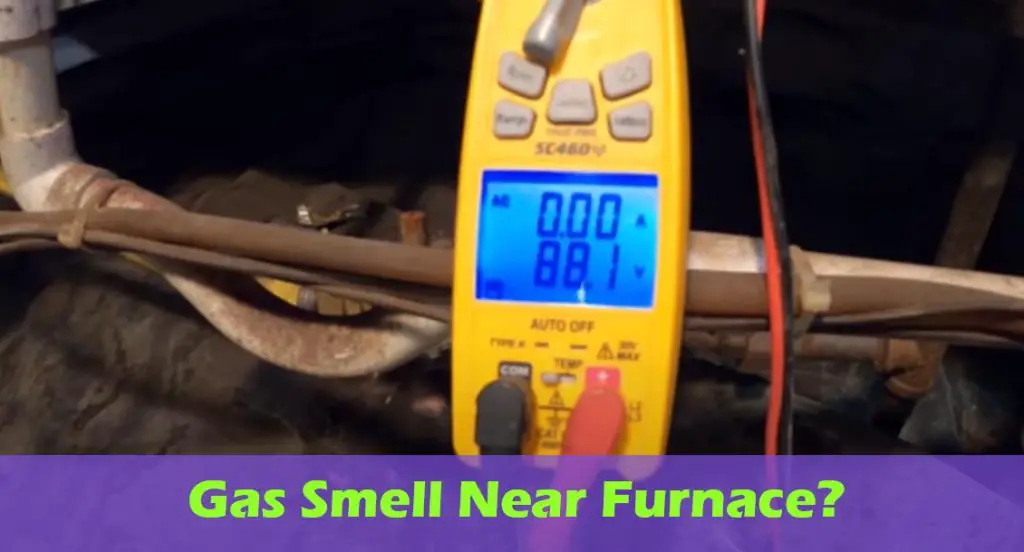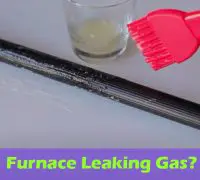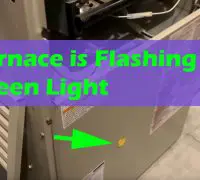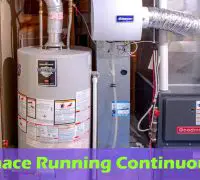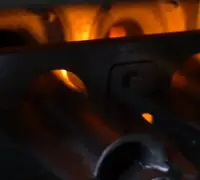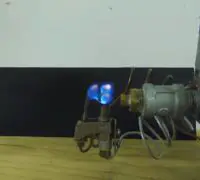Natural gas is crucial in many households as it helps us heat the house and cooking. At the same time, natural gas is highly flammable and dangerous to inhale. Sensing gas from your furnace is not expected unless the unit is defective. When you sense a smell of faint gas close to the furnace when it’s operating, the chances are there is no concern. Sometimes, gas furnaces will generate small gas amounts when operating. If the gas smell gets stronger and doesn’t disappear, you need to contact professionals immediately.
Page Table of Contents
When is a gas smell near the furnace typical?
Most gas furnaces use propane or natural gas to operate. Both gases are naturally odorless and highly dangerous. As a result, the gas companies must add sulfur (it generates a rotten egg smell) to help users identify a gas leak. When you smell gas from your furnace, it’s probably the sulfur you sense.
Sometimes, it’s natural to detect a gas smell near the furnace:
At the beginning of the heating season
When you haven’t used the furnace for several months, it’s expected that dust, dirt, and various particles will collect into the heating unit. When you use the furnace for the first time in months, a subtle gas small is expected as the furnace will burn off the deposited debris. It’s normal; you can avoid and reduce the smell by opening some windows for cross ventilation.
Dust burning is one of the most common causes of gas smell from the furnace. As we’ve mentioned, it occurs when you haven’t used the furnace for several months. You shouldn’t worry much if this is the reason for your furnace’s gas smell. The smell should dissipate shortly. You should clean the system before using it again after several months to avoid the gas smell. Cleaning the ducts regularly can help as well.
At the beginning of a heating cycle
When the thermostat sends the command for heating, the gas supply valve will eliminate gas into the combustion chamber. The ignition or pilot will need a fraction of a second to ignite the gas. Therefore, you might smell natural gas when the furnace begins a heating cycle, as the burner needs a couple of seconds to burn off the supply. However, the smell should dissipate in a few seconds. It’s a standard operating procedure for the gas furnace. As long as the gas smell isn’t strong, not permanent and closed within a few feet of the furnace, it would help if you didn’t stress about the gas smell coming from the furnace.
Sometimes, you might sense the faint gas smell more often, but it goes away quickly. The furnace’s kick-on and kick-off cycle could cause a gas smell. A furnace should kick on or off three to eight times every hour. Every time a cycle ends and another one starts, a slight gas smell might come from the furnace. Even if you shouldn’t panic, you shouldn’t ignore it either. The best thing to do is to contact a technician to inspect the system and identify possible issues.
What are the causes for the gas smell from the furnace (and you should worry)
Here are the leading causes of the gas smell coming from the furnace:
There’s something wrong with the exhaust pipe
The exhaust pipe can be why you sense a gas smell coming from the furnace. The exhaust pipe should eliminate the burnt gas safely to the outside. Therefore, when there’s a gas smell in the house, it could mean that the gas somehow goes back inside the house.
Before you conclude that the exhaust pipe is the cause of the gas smell, you should check out several things. Wind may have blown back the gas into the house when the gas comes through a door or window.
It’s normal for the exhaust pipe to smell like gas, so don’t panic. After all, the exhaust pipe is used to eliminate the used gas from the furnace and might carry unburned gas that generates the smell. The best thing you can do is pay attention to where the gas is coming from and shut the door or window next to it.
The safest thing is to contact a professional HVAC technician to investigate the cause. Even if you suspect why the furnace gives a subtle gas smell, you should always double-check with a technician.
There’s a gas leak
This is one of the worst nightmares of house owners. When a gas leak causes the smell, you should act immediately. Gas leaks can have dramatic consequences when not addressed right away. For example, gas leaks can generate carbon monoxide poisoning and even gas explosions. Both situations are dangerous and can become lethal.
If you suspect a gas leak, here are the signs to look for:
- There’s always a gas smell in your house
- You hear hissing or whistling coming from the furnace
- The gas smell comes from the house’s air vents
- The alarm from the carbon monoxide detector turns on
If you detect any of these signs, you must immediately turn off the system and evacuate the house. Take a safe distance from the house and call your local gas company to come and examine your HVAC system.
Also, whenever you suspect a gas leak, you should stop and avoid all activities that might ignite a spark. You might know how to bag the gas leak and generate an explosion.
The smell doesn’t come from your furnace
Sometimes, the problem might not be the furnace—a trash pile you haven’t thrown away could be the problem. When you have some trash or compost near your living room window, the gas smell could come from it. As the trash decomposes, the smell will resemble rotten eggs, similar to the gas smell. As the wind can blow the smell inside the house, you might misbelieve that it comes from the gas furnace leaking.
Check out the trash before you conclude that the gas smell comes from your furnace. Don’t put the compost pile too close to the windows—not only will the smell go inside, but you might also risk bacteria and germs getting inside!
What if the smell of gas is present throughout the heating cycle?
It’s not unusual to sense the smell of mercaptan (it’s added to natural gas for smell) throughout the heating cycle. However, when you always sense the smell, the furnace might have an issue with the burner, the ignition, or the combustion chamber. When the furnace doesn’t burn fuel as expected, it can risk your health and well-being.
Call an HVAC technician for furnace inspection if you sense the gas smell throughout the heating cycle without the smell fainting or dissipating. He can only inspect and discover the problems on your furnace.
What if the gas smell gets stronger?
If the furnace operates as it should, the initial smell of mercaptan in the natural has should go away. However, if the smell only gets stronger, you should act immediately. A strong smell of gas should always worry you, no matter when or where it happens. If you sense that the gas smell worsens as you get closer to the furnace or while the heating cycle continues, get out of the house. Call for an emergency furnace repair when you’re safe from your house.
What should you do when the gas smell spreads to other areas of your home?
It’s not typical for the gas small to spread inside the house. Many people use gas-powered appliances (water heaters, clothes dryers, cooktops, ovens, etc.) and you must call the professionals when the gas smell is everywhere.
There could be a gas leak in your house (not from the furnace) and a severe malfunction of your furnace. Should you first smell the gas near the furnace and then, a few minutes after, in the whole house, evacuate the house right away. The technicians should immediately inspect the furnace and the gas company should also come and perform leak detection services.
Should you worry about the gas smell outside the house?
Act immediately if you sense the gas smell inside and outside your house. The gas line might leak. Call for emergency repairs as you take a safe distance from your household. The gas line entering your house could have a severe problem. If you detect small gas near the furnace’s flue, there could be a blockage or an obstruction. Additionally, the furnace’s combustion chamber might have an issue. If the fuel is improperly burning, some of the natural gas smell might linger and be released slower from the flue.
